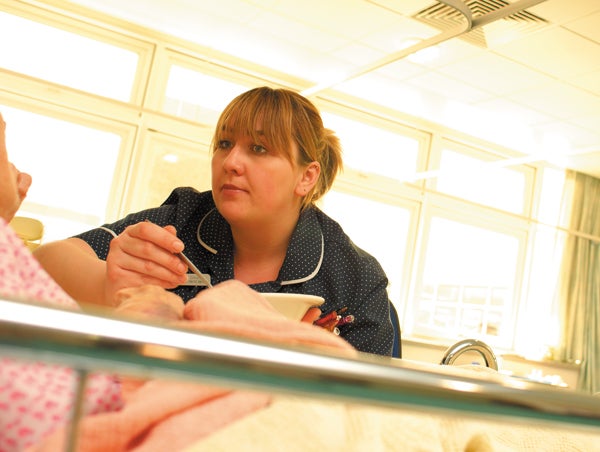Nursing: Mental health

Working with a team of professionals, mental health nurses provide essential care for service users.
Support that makes a real difference to people’s lives Working with a team of professionals, mental health nurses provide essential care for service users Like many people opting for a career in mental health nursing, Norman Young was influenced by having known people with mental health problems. Having just completed a degree in psychology and biochemistry, it meant he had to embark on a further three years training. Nonetheless, he says, there were plenty of other older people on the course – indeed, the average age of students on mental health nurse training is 29 – and the exposure to clinical practice alone made it a rewarding experience. “I was doing a lot with patients from day one and so I got to apply the academic knowledge almost immediately,” he says. It wasn’t all plain sailing, he admits. “I was shocked because there were still some Victorian settings in which people with mental health issues stayed. It showed there was a big gap between the ideal and the grass roots.”
Young left his training in the early Nineties invigorated about two particular areas – working in rehab with people with long-term conditions and working with community mental health teams. “There was a big push for such teams to be developed at that time and I liked that. Working with service users in their own homes meant there were no power balance issues and I found the work far more autonomous. There was also the benefit of getting more respect from other professionals. I found people asking for my opinion quite a bit.” Although it’s not the case now, back then it was the done thing to get a job in a hospital upon graduation. Young worked in an acute inpatient setting in the area of addictions, a role that he enjoyed but which frustrated him in terms of not being able to meet every patient’s needs. “I’d set up times to see them on a one to- one basis, but I’d constantly get interrupted. It dawned on me that I was more suited to community work, where I could schedule someone in the diary on a regular basis and stick to it. Also, as these people weren’t so acutely unwell, they’d remember things better from one session to the next, so you’d see a change as a result of your work.”
Working with a champion for service users, Young was able to get involved in self-help and self-management programmes, as well as improving his own therapeutic skills in cognitive behavioural therapy and in behavioural family intervention.
“Research shows you can improve the outcomes for conditions such as schizophrenia where you work with the whole family. For instance, if the family is too protective of the service user, they don’t get a chance to grow,” he explains. Young found himself working alongside GPs, social workers, occupational therapists and others and as his competencies grew, he was asked to do the odd bit of teaching. When he’d done a Masters degree himself, he became even more deeply involved in training others. Today, he spends half his time teaching as a lecturer in mental health nursing at Cardiff University and the other half as a metal health nurse consultant at Cardiff and Vale NHS Trust.
In this latter role, Young challenges ideas around one to- one time with patients so that today’s nurses can avoid the kinds of frustrations he had. In addition, he works to improve the environment of care for people with mental health problems and supports practitioners themselves via training, supervision or liaising with their managers. He encourages nurses to do more therapeutic work too. Meanwhile, on the community side, Young supports the mental health teams and aims to improve supervision support and develops care pathways and innovative practice. He even finds time to work directly with clinical patients himself. “It’s a very autonomous role,” he says. “And one where I really feel I can make a difference.” There’s still a long way to go in improving mental health care, admits Young. “But we’ve already moved forward since I did my training and it’s exciting being part of the changes that still need to happen.”
Join our commenting forum
Join thought-provoking conversations, follow other Independent readers and see their replies
Comments